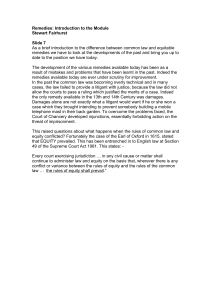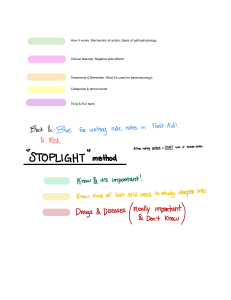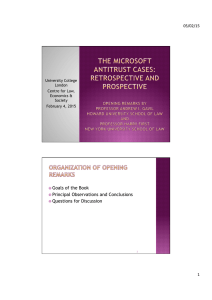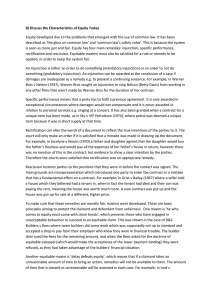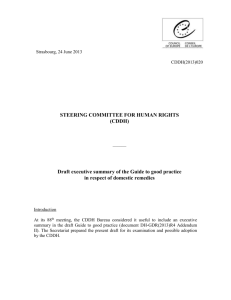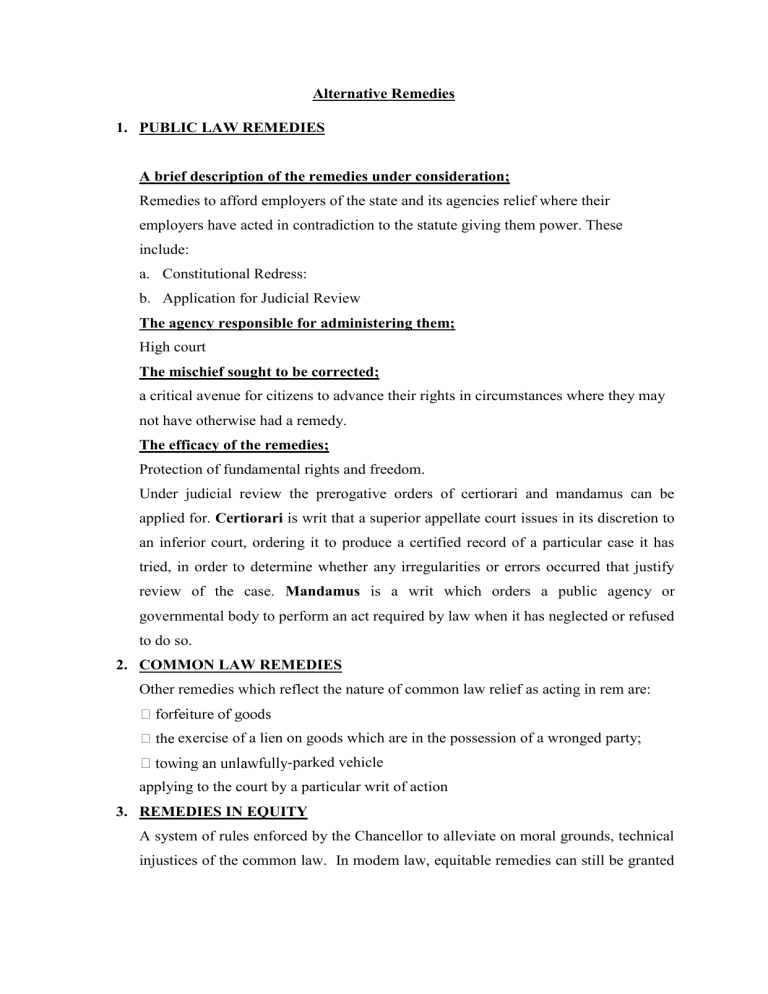
Alternative Remedies 1. PUBLIC LAW REMEDIES A brief description of the remedies under consideration; Remedies to afford employers of the state and its agencies relief where their employers have acted in contradiction to the statute giving them power. These include: a. Constitutional Redress: b. Application for Judicial Review The agency responsible for administering them; High court The mischief sought to be corrected; a critical avenue for citizens to advance their rights in circumstances where they may not have otherwise had a remedy. The efficacy of the remedies; Protection of fundamental rights and freedom. Under judicial review the prerogative orders of certiorari and mandamus can be applied for. Certiorari is writ that a superior appellate court issues in its discretion to an inferior court, ordering it to produce a certified record of a particular case it has tried, in order to determine whether any irregularities or errors occurred that justify review of the case. Mandamus is a writ which orders a public agency or governmental body to perform an act required by law when it has neglected or refused to do so. 2. COMMON LAW REMEDIES Other remedies which reflect the nature of common law relief as acting in rem are: exercise of a lien on goods which are in the possession of a wronged party; -parked vehicle applying to the court by a particular writ of action 3. REMEDIES IN EQUITY A system of rules enforced by the Chancellor to alleviate on moral grounds, technical injustices of the common law. In modem law, equitable remedies can still be granted or refused as the court in its discretion sees fit, having regard to the requirements of the case. Some equitable remedies that have been developed over the years are: Specific performance; Injunctions: a. Interim – an injunction restraining someone from doing something in order to maintain the status quo pending a final decision of the court. Usually is granted based on the balance of convenience. b. Perpetual – a final injunction and are such as form part of the decree made upon the hearing upon the merits. c. mandatory - an injunction entered at the conclusion of an equity case compelling the defendant to do some positive act or to cease to do something he has done, thereby compelling him in effect to undo it a. the Anton Piller - a court order that provides the right to search premises and seize evidence without prior warning. This prevents destruction of relevant evidence, particularly in cases of alleged trademark, copyright or patent infringements. b. Mareva - a court order freezing a debtor's assets to prevent them being taken abroad. Accounts - most commonly used in cases of breach of fiduciary duty. It is an action taken against a defendant to recover the profits taken as a result of the breach of duty, in order to prevent unjust enrichment. In conducting an account of profits, the plaintiff is treated as if they were conducting the business of the defendant, and made those profits which were attributable to the defendant's wrongful actions. Tracing - a process by which a claimant demonstrates what has happened to his property, identifies its proceeds and the persons who have handled or received them, and justifies his claim that the proceeds can properly be regarded as representing his property. Declaratory Relief - ask a court to conclusively rule on and affirm the rights, duties, or obligations of one or more parties in a civil dispute Rescission - Rescission is the unwinding of a transaction. This is done to bring the parties, as far as possible, back to the position in which they were before they entered into a contract Rectification - a remedy whereby a court orders a change in a written document to reflect what it ought to have said in the first place. Restitution - restore a person to the position they would have been in if not for the improper action of another – if I contracted you to paint my walls in red but you painted it in blue I can possibly get a court order to have you repaint it in the colour I wanted at your expense. Damages awarded by a court in its equitable jurisdiction when damages not available at common law Equity is said to act in personam while common law acted in rem. It exercised its jurisdiction over the person and could command the person to act in a particular way or to refrain from acting in such a way. Further, it had wider coercive powers on the person than common law because where common law could impound or forfeit the property of the individual, equity could imprison the individual for failure to observe its orders.
